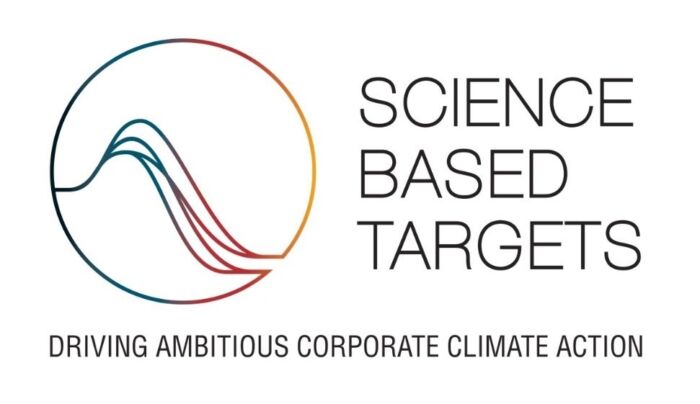SBTi approved targets

Lincolnshire Co-op, reporting under Lincolnshire Co-operative Limited, has set ambitious environmental targets as part of a commitment to reach net-zero by 2045.
The society has approved near and long-term science-based emissions reduction targets with the Science Based Targets initiative (SBTi).
The Science Based Targets initiative (SBTi) is a corporate climate action organisation that enables companies and financial institutions worldwide to play their part in combating the climate crisis.
It develops standards, tools and guidance which allow companies to set greenhouse gas (GHG) emissions reductions targets in line with what is needed to keep global heating below catastrophic levels and reach net-zero by 2050 at latest.
Our SBTi approved targets…
Overall Net-Zero Target: Lincolnshire Co-operative Limited commits to reach net-zero greenhouse gas emissions across the value chain by FY2045.
Near-Term Targets:
- Energy & Industry: Lincolnshire Co-op commits to reduce absolute scope 1 and 2 GHG emissions 42% by FY2030 from a FY2024 base year.
- Lincolnshire Co-op also commits to reduce scope 3 GHG emissions 52% per £ million value added within the same timeframe.
- Lincolnshire Co-op further commits to reduce absolute scope 3 GHG emissions from use of sold products 42% within the same timeframe.
- FLAG: Lincolnshire Co-op commits to reduce absolute scope 3 FLAG GHG emissions 36% by 2030 from a 2024 base year.*
- Lincolnshire Co-op commits to no deforestation across its primary deforestation-linked commodities, with a target date of December 31, 2025.
*The target includes FLAG emissions and removals.
Long-Term Targets:
- Energy & Industry: Lincolnshire Co-op commits to reduce absolute scope 1 and 2 GHG emissions 90% by FY2035 from a FY2024 base year.
- Lincolnshire Co-op commits to reduce scope 3 GHG emissions 97% per £ million value added by FY2045 from a FY2024 base year.
- Lincolnshire Co-op commits to reduce absolute scope 3 GHG emissions from use of sold products 90% by within the same timeframe.
- Lincolnshire Co-op finally commits to maintain a minimum 90% absolute scope 1 and 2 GHG emissions reduction from FY2035 through FY2045 from a FY2024 base year.
- FLAG: Lincolnshire Co-op commits to reduce absolute scope 3 FLAG GHG emissions 72% by 2045 from a 2024 base year.*
*The target includes FLAG emissions and removals.
Say it simply…
Scope 1 emissions - Direct greenhouse gas emissions occur from sources that are owned or controlled by the company, for example, emissions from combustion in owned or controlled boilers, furnaces, vehicles. (Source: ghg-protocol-revised.pdf)
Scope 2 emissions - Scope 2 accounts for greenhouse gas emissions from the generation of purchased electricity consumed by the company. Scope 2 emissions physically occur at the power station or wind turbine where electricity is generated. (Source: ghg-protocol-revised.pdf)
Scope 3 emissions - Scope 3 emissions refers to the emissions associated with Lincolnshire Co-op’s supply chain e.g. food products purchased or how packaging waste at stores is disposed. (Source: ghg-protocol-revised.pdf)
FLAG emissions - Forest, land and agriculture (FLAG) emissions refers to emissions associated with agricultural sectors which sit in Lincolnshire Co-op’s supply chain. (Source: SBTi Corporate Net-Zero Standard V1.2)
FY - Acronym for financial year.
